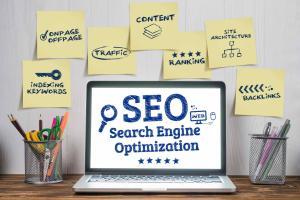With over 5.3 billion people worldwide currently using the internet, a solid online presence is vital for almost any business.
Most people will go to Google for a product or service. As such, you’ll get more organic traffic to your site if your page shows up higher on search engine results pages (SERPs). Optimizing your search engine positioning will help your site show up higher.
In this guide, we’ll go over search engine positioning and why it’s so important. Keep reading for more.
What Is Search Engine Positioning?
Search engine positioning is a process that involves continuously optimizing pages on your website. The aim is to target specific keywords and show up higher in search engine results. The keywords and terms you want to focus on should be related to your niche.
When done effectively, your page could be one of the top results for particular keywords. This will help you get more organic traffic and a higher click-through rate.
People often think this is a one-time thing but an ongoing process. You must consistently work on your search engine positioning to maintain a higher spot.
Search Engine Positioning vs SEO
If you have an idea of search engine optimization (SEO), you might think it’s the same thing. While both SEO and search engine positioning help you achieve the same goal, the process is somewhat different.
Search engine positioning is more focused and involves consistently optimizing your brand to hold higher-ranking positions. It uses specific keywords that are aimed at your target audience.
SEO is a more general process that covers other aspects, such as backlinks, link building, and organic traffic. You shouldn’t just choose one or the other. Concentrating on organic SEO alongside search engine positioning will help you get the best results.
The Business Benefits of Search Engine Positioning
Focusing on search engine positioning can take a lot of work, especially as it’s a continuous process, but it is well worth it. It can provide several significant benefits.
Increased Organic Traffic
Showing up higher in SERPS can significantly impact your website’s traffic. You can work on other elements to help you gain a higher ranking. This includes improving site authority, page load speed, and mobile responsiveness.
Outrank the Competition
No matter your industry, there will always be a degree of competition. Some businesses will face more than others, but it should always be a goal to stay ahead of your competitors.
Search engine positioning focuses on keywords specific to your niche. Using it effectively will help ensure your page appears first when people search for the keywords you’re targeting.
Better Reputation as an Expert
Establishing an authoritative business brand can be very beneficial. It will help improve your search engine rankings, and users will tend to value your site’s information more.
If people continuously see that your brand provides helpful, insightful, and accurate information, their trust will grow. This will make them more likely to choose your company over others, even if your ranking falls a bit.
Checking the Position of Your Page in a SERP
It’s important to remember that, regardless of keyword research and web page optimization, your search engine positioning will always fluctuate, and it can happen very quickly. Your site might rank at the top of Google for a specific search term in the morning, but someone else could search the same term in the afternoon and find that your site has fallen from the top spot.
You should look at your average ranking position to get a clearer idea of where your page stands. You can do this through your Google Search Console page. You’ll quickly see your average position and where specific terms are ranking.
It can also give you other insights, such as your click-through rate. The information it provides can help you improve your search engine positioning strategy. Note that there are different tools on the market that you can use to analyze your site.
Maximizing Your Search Engine Positioning on Google
Consistency is one of the most essential things regarding search engine positioning. There’s not much point in putting in considerable effort to rank number one for your target keywords and then ignoring it.
Without continuous optimization, your site will fall back down the rankings. To help keep your ranking high, you should follow several practices.
Create Quality Content
You’ve probably heard the term “Content is king,” and while it may seem cliché, it remains true. Make sure your content is accurate, engaging, and professional. It should always provide value and answer questions that your audience might have.
Choose the Right Keywords
Take the time to do keyword research. The keywords you target will significantly impact the effectiveness of your search engine positioning. Aiming for a wide range of relevant keywords is ideal and will help you bring in more traffic.
Check Your Website Load Time
Load times will affect your ranking, so the faster your site is, the better. Various tools online allow you to do this. Optimizing media and other page elements to reduce load times will improve rankings and user experience.
Update Meta Tags and Descriptions
This is a simple step, but it can have a sizable impact. Make sure your meta tags and descriptions will entice users. They should be engaging and clarify that your site will give people the answers they want.
Improving Your Search Engine Positioning
Search engine positioning can significantly impact your website’s traffic and your business’s overall success. To get the best results, ensure you’re continuously optimizing your site and improving your strategy.
Working with a professional digital marketing agency is the best way to ensure your site is optimized effectively. Quick Web Designs provides a range of web-based services with over 20 years of experience. Request a free proposal or book a call with us today to discuss your needs.







